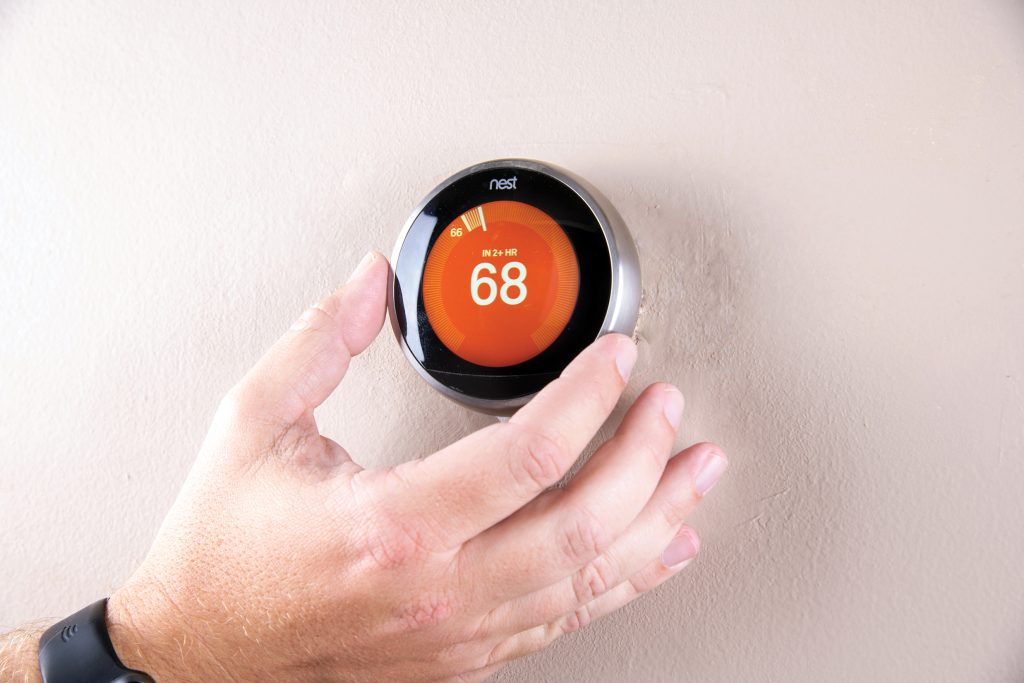By Miranda Boutelle

Do energy-saving measures in my home make a big difference?
For the average household, it depends on your home’s efficiency and your habits. Your energy use is based on your home’s equipment and how you use it. You might already have an efficient home and good energy use habits, or you might have room for improvement.
Energy keeps us comfortable in our homes, and our monthly bill is the associated cost for this energy use. To make energy-saving measures work in your home, it comes down to preventing energy waste while maintaining personal comfort in your home.
Let’s take it back to the basics and see if we can find opportunities to save energy in your home. Filters, LEDs and thermostat settings are great places to start.
Replace filters
If your home has a forced-air system, you have a filter. The filter needs to be checked regularly and replaced when it’s dirty. A dirty filter can cause heating and air-conditioning systems to use 15% more energy, according to the U.S. Department of Energy (DOE).
Since heating and air conditioning make up almost half of your energy use, replacing your filter when it looks dirty is a habit that can reduce energy waste.
Upgrade to LEDs
Upgrading your lighting to LEDs is a simple, low-cost way to cut energy use. Depending on your budget, you can do it all at once or change bulbs out over time. If you are going to replace a few at a time, prioritize the lights you use the most.
There are many LED options available. One major variation is the color temperature, which is listed on the packaging in Kelvin. I recommend 2700K because it is similar to incandescent lighting. I also suggest ENERGY STAR-rated products because they meet strict quality and efficiency standards, use up to 90% less energy and last 15 times longer than standard bulbs.
Adjust your thermostat
It’s amazing how much difference a few degrees can make. By adjusting your thermostat to your home habits, you can save year-round on heating and cooling costs.
For winter months, the DOE recommends setting your thermostat to 68 degrees when you are home and dialing it back 8 to 10 degrees when you leave the house or go to sleep. For summer, the recommendation is 78 degrees when you are home and 8 to 10 degrees warmer when you are away. Using a programmable or smart thermostat will allow you to set it according to your schedule.
Making these small changes in your routine will help improve your energy efficiency while maintaining comfort in your home.
Miranda Boutelle, director of operations and customer engagement at Efficiency Services Group, is the new energy columnist for Alabama Living, replacing Patrick Keegan who retired in 2021. Her company partners with electric utilities to provide energy efficiency services to members. She writes on energy efficiency topics for the National Rural Electric Cooperative Association, the national trade association representing more than 900 local electric cooperatives. For additional energy tips and information on Collaborative Efficiency visit: www.collaborativeefficiency.com/energytips.




